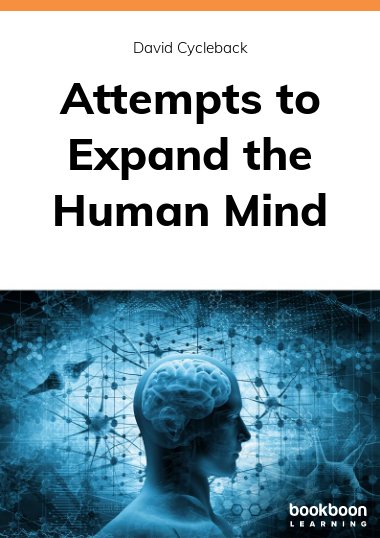Third in a cognitive science series, this book critically surveys historical, current and futuristic attempts to expand the human mind. Areas covered include artificial intelligence, health and medicine, mystical experiences and spirituality, eugenics, brain-computer interfaces, Eastern versus Western psychological approaches and brain studies, virtual reality and implants. The book covers key philosophical, psychological and practical issues.
About the author
David Cycleback is Director of Center for Artifact Studies ( centerforartifactstudies.org ), an internationally known scholar working in cognitive science, philosophy and artifacts history, and a best-selling author. He was runner-up for the International Book Award for Philosophy for Noise Music: Cognitive Psychology, Aesthetics and Epistemology and a four-time Eric Hoffer Award Finalist. In their second printing by China's National Photographic Art Publishing House, his guides Judging the Authenticity of Prints by the Masters and Judging the Authenticity of Photographs were the first comprehensive books on the subjects published in Asia, and Art Perception is one of four books students are recommended to study in preparation for India's Common Entrance Exam for Design (CEED) for postgraduate studies in technical design. He has been a practicum coordinator for the University of Washington, and an authenticity researcher for Arizona State University's Society for American Baseball Research. His other books include Cognitive Science of Religion and Belief Systems, Understanding Human Minds and Their Limits, Limits of Science, Philosophy of Artificial Intelligence, and Authenticating Art and Artifacts: An Introduction to Methods and Issues.


